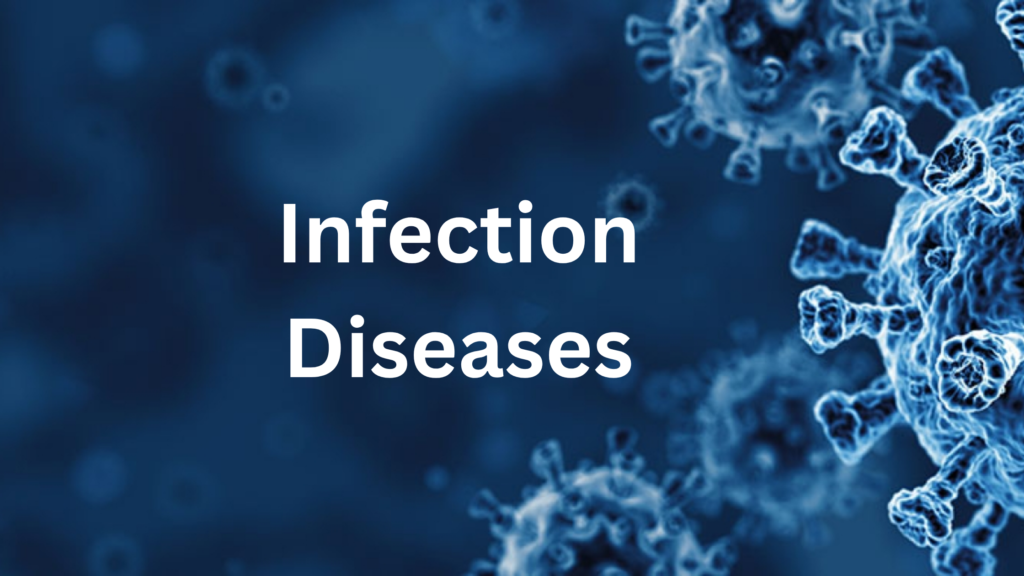What are Infectious Diseases? 🦠🩺
Infectious diseases are illnesses caused by pathogens such as bacteria, viruses, fungi, or parasites that can be transmitted from one person to another, animals, or the environment.
Common Types of Infectious Diseases
- Bacterial infections: Tuberculosis, strep throat, urinary tract infections
- Viral infections: Influenza, HIV/AIDS, COVID-19, hepatitis
- Fungal infections: Athlete’s foot, candidiasis
- Parasitic infections: Malaria, toxoplasmosis, giardiasis
How are Infectious Diseases Spread?
- Direct contact with infected people (touch, sexual contact)
- Airborne transmission (coughing, sneezing)
- Contaminated food or water
- Vector-borne transmission (mosquitoes, ticks)
- Contact with contaminated surfaces or objects
Symptoms of Infectious Diseases
- Fever and chills 🌡️
- Fatigue and weakness 😴
- Coughing and sneezing 🤧
- Diarrhea and vomiting 🤢
- Skin rashes or lesions
- Muscle aches and pains
Diagnosis and Treatment
- Lab tests to identify the specific pathogen (blood tests, cultures, PCR)
- Antibiotics for bacterial infections
- Antiviral drugs for some viral infections
- Antifungal and antiparasitic medications
- Supportive care including hydration, rest, and symptom management
Prevention 🛡️
- Vaccinations to protect against many infectious diseases 💉
- Good hygiene practices like handwashing 🧼
- Safe food and water handling
- Use of insect repellents and protective clothing
- Safe sex practices
- Quarantine and isolation during outbreaks
Role of Infectious Disease Specialists
- Diagnose and manage complex or unusual infections
- Monitor outbreaks and advise on infection control
- Guide antibiotic stewardship to prevent resistance
- Collaborate with public health authorities
